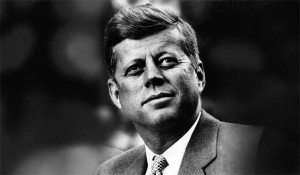Education Lessons JFK Left Behind
100 years after the birth of John Fitzgerald Kennedy and with his birthday falling on Memorial Day, it seems fitting to look back in tribute at the education lessons JFK left behind.

President Kennedy recognized that our country
“requires a citizenry that understands our principles and problems. It requires skilled manpower and brainpower to match the power of totalitarian discipline. It requires a scientific effort which demonstrates the superiority of freedom. And it requires an electorate in every state with sufficiently broad horizons and sufficient maturity of judgment to guide this nation safely through whatever lies ahead.”
— Final Special Message to the Congress on Education, January 29, 1963
Today, are this nation’s needs any different than when JFK made his proposals to congress?
In 1961, Kennedy’s first appeal to Congress on behalf of public schools was for support of his “twin goals”:
“a new standard of excellence in education and the availability of such excellence to all who are willing and able to pursue it.”
By April 11, 1965, over two years after JFK’s assassination, his “twin goals” became the aim of national education policy when President Johnson signed the Elementary and Secondary Education Act (ESEA),
An Act
“To strengthen and improve educational quality and educational opportunities in the Nation’s elementary and secondary schools.”
Kennedy emphasized the need to address “depressed areas” and “slum neighborhoods” where children are known to have: poor diets, unaddressed speech, dental and visual disorders, and where older students are in need of job guidance and proper recreational activities.
The first titles of ESEA addressed Kennedy’s concerns for a spectrum of Education Lessons JFK Left Behind - The Crucial Voice of the PeopleThe Crucial Voice of the People:
